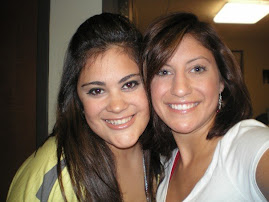This article is about:
- Community
- Challenges
- Disabilities
- Accommodation
- Society
- Perception
- Acceptance
- Understanding
- Incompetence
- Relationships
- Possibilities
Kliewer argues that children with disabilities should not be separated from the community. He says that those without a disability are incompetent when it comes to knowing what these children need and are able to accomplish. If they were to put students with all kinds of abilities together then we would all operate better as a community, instead of furthering the idea of individuality in a community.
Evidence:
- “The challenge is to erase negative attitudes about people with developmental disabilities, get rid of the stereotypes and break the barriers for people with disabilities”.
- “Community, then, serves the functional purpose of furthering individual efforts to accrue cultural capital”.
- “Those who appear not to make use of these conditions (supposedly open to all) or who appear to lack the potential to accrue privileges, are systematically devalued as less than full citizens—charges as they are with having the differences that matter”.
- “Society itself is hurt when schools act as cultural sorting machines—locations that justify a competitive ethic that marginalizes certain students or groups of students… [That] legitimize discrimination and devaluation on the basis of the dominant society’s preferences in natters of ability, gender, ethnicity, and race…”
I think this is a good article to read because there is never a real discussion about people with disabilities in the classroom. Like the author says this is due to the fact that those children are always separated from mainstream. When reading some of the personal stories it is apparent how frustrated they are because there are misunderstood and misrepresented. When I think about someone with a disability I try not to judge them but I think in a school situation society has made it so that all we can see is the disability and that is judgment in itself. When I was told there was a little girl in the class I volunteer in who has autism I wasn’t sure what her abilities were. I assumed that she would not do the same activities as the other students but it turns out that she is included in everything.
The author is so right when he says that there isn’t a strong sense of community in society and individualism is so prominent. We really do not learn how to listen to others or connect with those different from ourselves. We are placed in classrooms with people who have similar abilities and interests as ourselves. This really does promote competition and furthering of ones personal gain. In the article the kids with disabilities just want to be accepted and understood and we cannot do that if we do not interact with them. It is just like the article In the Service of What when they explain how the only way to educate yourself is to form relationships with people. Students also need to be able to reflect and talk about experiences so they can have a deeper understanding of how the people they are helping got into that position.
There were stories of schools that did not really have a curriculum and had students with and without disabilities in one classroom which worked out extremely well. The institution and factory model of education makes this near impossible in almost all areas. The teachers and students in these classrooms formed amazing bonds with students of all kinds and people who came from the outside had little understanding of how effective it was. I think it is so important to be exposed to as many different kinds of people possible when we are young. Then we will become so accustomed to everything that it will not phase us.
It is our job as educators and members of society to not judge people with disabilities. We cannot assume that they are unable to perform tasks or participate in all aspects of society. It is just like the little boy in



